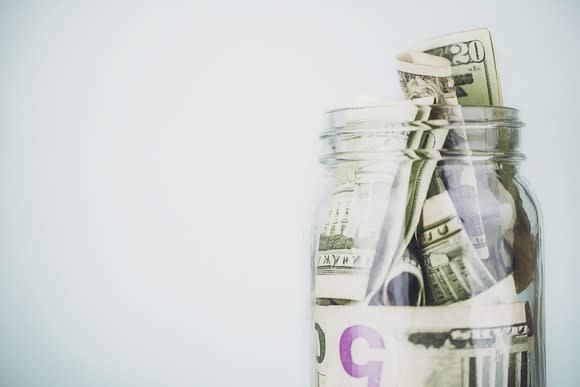Credit Cards With Low Interest Rates
If you carry a balance on a credit card, rates and interest charges are more important than virtually everything else -- no foreign transaction fees, rewards, or other perks don't come close. Cardholders who have good or excellent credit can find serious savings -- up to $725 in interest on a $5,000 balance -- by shopping for a new card with an introductory rate as low as 0%.
The lowest rates possible
The best interest rates will always be found through promotional offers for new cardholders. New cardholders can usually secure a 0% intro APR on purchases and balance transfers, which have two different applications:
Purchases: If you want to finance a major purchase inexpensively, a credit card with a 0% intro APR on purchases is the way to go. Many cards offer 0% APRs to qualifying cardholders for periods that span 12 to 18 months, which can save you hundreds of dollars compared with an ordinary credit card or store card APR of 18% or more.
Balance transfers: If you have existing credit card debt you'd like to finance at a lower APR, a balance-transfer credit card is your best bet. These cards offer 0% APRs for periods as long as 18 months when you move your balances to a newly opened credit card. Keep in mind that some cards charge a flat fee to move a balance -- often 3% of the amount transferred. Fool.com is building a database of the best card offers, including credit cards that waive balance-transfer fees when balances are transferred in the first 45 to 90 days after account opening.

Image source: Getty Images.
How much can you save?
Signing up for a credit card with a 0% APR can potentially save you hundreds of dollars in interest over the life of the balance. I've calculated potential savings assuming you use a 0% promo APR credit card to pay off a $5,000 balance during the 0% period:
Length of 0% Intro APR Period | Interest Savings on a $5,000 Balance |
|---|---|
9 months | $382.45 |
12 months | $500.80 |
15 months | $620.80 |
18 months | $742.54 |
Data source: author calculations based on the difference between 18% and 0% APRs on a $5,000 balance paid off with equal monthly payments.
The savings can be substantial. Cardholders who use a 0% intro APR credit card to finance a $5,000 purchase would save $742.54 in interest charges, compared with the prototypical credit card with an 18% APR.
Few cards offer this much value for new cardholders. In fact, even the very best rewards card with the highest sign-up bonus only offers $625 in travel value in the form of a new cardholder bonus. Only when you look at a 0% intro APR on a relative basis do cardholders discover that a 0% intro APR can be more rewarding than even the best rewards and sign-up bonus cards for people with excellent credit.
Being smart about 0% APR cards
If you carry a balance on a credit card, you aren't alone. Data from the Federal Reserve suggests that as many as two out of five American credit cards had a balance carried over for at least one month in 2015.
Of course, some cardholders were probably taking advantage of 0% APRs, while countless others were paying rates as high as 29%, because of penalty interest rates charged when payments are made late. Given the proliferation of 0% intro APR card offers, it makes very little sense to pay a non-zero interest rate on your balances.
Use a 0% intro APR wisely by using it to break up a large purchase into smaller monthly payments, or by transferring high-APR balances to a 0% balance-transfer credit card. If you use the promotional period to pay off your balances, and chip away at your debt faster, you can save hundreds of dollars and put credit card debt behind you for good. But mind the cliff -- all cards with 0% intro APRs eventually revert to standard credit cards with standard interest rates.
For this reason, it's imperative that you use the 0% intro APR period to make the largest possible dent in your balances, ideally paying the balance off in full before the rate resets.
More From The Motley Fool
6 Years Later, 6 Charts That Show How Far Apple, Inc. Has Come Since Steve Jobs' Passing
Why You're Smart to Buy Shopify Inc. (US) -- Despite Citron's Report
The Motley Fool has a disclosure policy.
